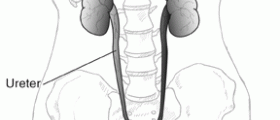
Guanfacine and its use
Guanfacine belongs to the wide range of the medicines that are used for the treatment of high blood pressure, or more precisely, for its control. Generally, these medicines are known as antihypertensives while guanfacine is also known under the brand names such as Tenex and Intuniv. If a person suffers from high blood pressure for a longer period of time, it may lead to some serious problems such as poor function of the heart or arteries, but it can also damage the brain, kidneys, and other organs, resulting even in a heart failure, stroke, or some other potentially fatal disease. The use of the medicines that help in keeping the blood pressure under control significantly diminishes the risk that something like that might occur because they affect blood vessels and help them relax, thus allowing the blood to flow through them much easier, which simultaneously lowers the blood pressure. Besides this, guanfacine may also be used in the treatment of attention deficit hyperactivity disorder by increasing the attention of either adults or children who have problems with concentration.
Side effects and ways to avoid them
Whichever the reason for the use of guanfacine may be it definitely has to be prescribed by the doctor. The doctor will prescribe the dose of the drug, because it is determined individually, and, in the first place, depending on the condition. Several other elements affect the doctor’s decision about the doses, but also the decision whether or not this medicine should be used in the particular case at all. Some of them are related to the other conditions that the patient may have such as disease of liver, kidneys, or heart, or problems with circulation. It should not be prescribed to the people who have some allergies, or the history of alcohol abuse, as well as to women who are either pregnant or still breastfeed their baby. Another important element that should be taken into consideration before prescribing this medicine is related to other medicines that the patient might be using at the same time, because guanfacine should not be combined with some of them due to the possible interaction.
However, even when having all this in mind, some of the side effects will still be possible because it is practically impossible to predict when the most common ones will occur. In case a patient feels constipation, diarrhea, appetite loss, headache or tiredness, sweating or blurred vision, he should be aware that these symptoms are probably related to the use of guanfacine. Although they may be uncomfortable, the patient should not stop taking the medicine before consulting the doctor. Some of the side effects that are less frequent and thus more concerning are irregular heartbeat, cough, pain in the chest, depression, troubles with breathing and frequent need for urination. Even only one of these symtoms is a reason good enough to contact your health care provider as soon as it is noticed.

















Your thoughts on this
Loading...